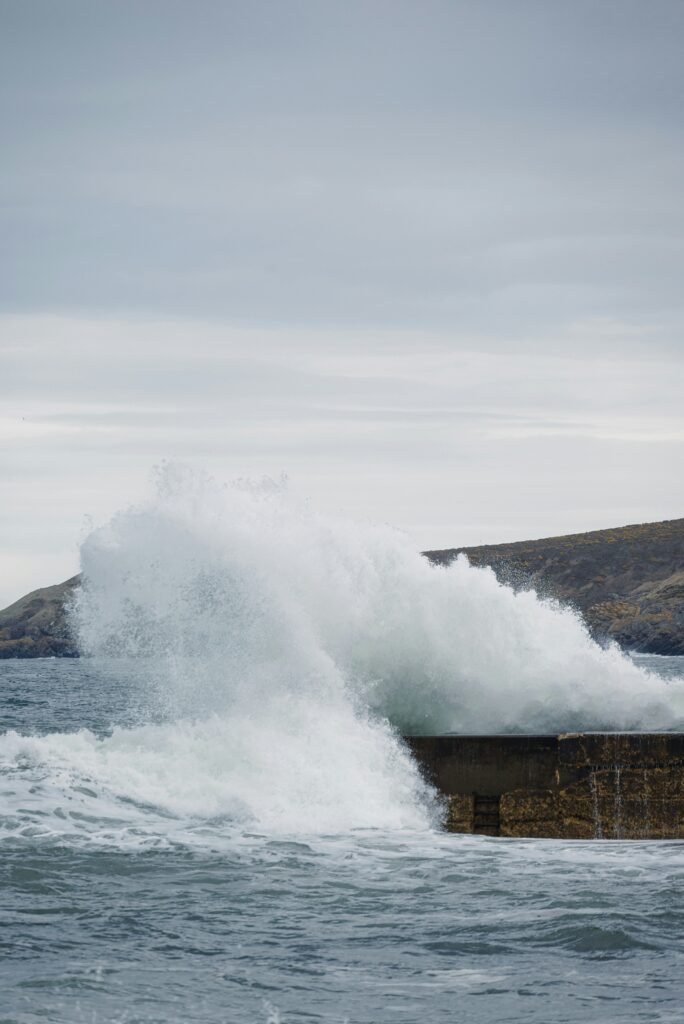Have you ever found yourself standing at the edge of a cold body of water, hesitating to take the plunge? It’s a moment that’s equal parts fear and excitement, and it raises a pressing question: what are the real health benefits of cold plunging, particularly for your heart?
The Basics of Cold Plunging
At its core, cold plunging involves immersing your body in cold water—whether it’s a lake, a tub filled with ice, or a cold shower. This practice, while popularized in recent years, has roots in various cultures and wellness traditions. It’s thought to enhance physical and mental well-being. But, what does the science say about its effects, especially when it comes to your heart?
Cold exposure may seem daunting, but the potential rewards could make it worth your while. The idea isn’t just to shock your system; it’s about exploring how a brief period of discomfort may lead to several positive health outcomes.
Physiological Response
When you immerse yourself in cold water, your body undergoes several physiological responses. These are essential to keep in mind as you ponder the benefits.
Immediate Responses
As soon as you plunge into cold water, your heart rate may spike. This initial increase happens because your body senses the extreme temperature change and goes into survival mode. Your blood vessels constrict in response, which helps to retain heat, a process called vasoconstriction. But what does this mean for your heart?
Long-term Effects
Over time, regular cold exposure may enable your body to adapt to cold stress. This adaptation could potentially improve vascular function—essential for heart health. Some studies suggest that those who regularly partake in cold plunges may experience improved circulation and lower blood pressure.

Cold Plunging and Heart Health
The relationship between cold exposure and heart health is still being studied, but here are some intriguing insights based on existing research.
Improved Blood Circulation
Regular cold plunging could lead to better blood circulation. When your blood vessels constrict and then dilate—a response triggered by cold exposure—it can promote better circulation overall. This means your heart has to work more efficiently, which can be beneficial.
Reduced Inflammation
Another potential advantage of cold plunging is its ability to reduce inflammation. Chronic inflammation is a precursor to various heart conditions. By engaging in cold exposure, you might experience reductions in inflammation markers, which can translate to a healthier heart in the long run.
Stress Reduction
Cold plunging can also have a significant impact on your stress levels. By immersing yourself in cold water, you might trigger a release of endorphins—your body’s natural “feel-good” hormones. Lower stress levels correlate with better heart health, which is something to keep in mind when debating the chilly dip.
Who Should Be Cautious?
While cold plunging presents some potential benefits for heart health, it’s essential to recognize that it’s not for everyone. Factors such as your individual health conditions and fitness level play a crucial role.
Pre-existing Conditions
If you have pre-existing heart conditions or cardiovascular issues, it’s critical to consult a healthcare professional before taking the plunge. Sudden exposure to cold can be taxing on the heart, particularly for those with underlying health issues.
Age and Fitness Level
Your age and overall fitness also significantly influence how your body reacts to cold exposure. Older adults or those who lead a sedentary lifestyle may want to ease into cold plunging gradually. Listen to your body and consider less intense forms of cold exposure, like cool showers, before jumping into cold water.

The Psychological Perspective
The psychological aspects of cold plunging shouldn’t be overlooked. Engaging in cold water immersion can lead to a sense of accomplishment and mental resilience.
Building Mental Toughness
Taking the cold plunge isn’t just about the physical; it’s also a test of mental fortitude. Overcoming discomfort can empower you, leading to greater confidence and a better outlook on life. This can indirectly benefit heart health by fostering an overall sense of well-being.
Community Impact
Many who participate in cold plunging often do so in groups. The communal aspect can be a massive part of the experience, promoting bonding and social support, both of which contribute positively to mental health—another factor that influences heart health.
Balancing Cold Plunging with General Health Practices
Incorporating cold plunging into your routine may offer benefits, but it shouldn’t replace standard health practices. Here’s how you can ensure you’re striking a healthy balance.
Healthy Diet
A balanced diet is crucial for heart health. Make sure you’re fueling your body with omega-3 fatty acids, antioxidants, and a variety of fruits and vegetables. Remember, nourishment matters.
Regular Exercise
Engaging in regular physical activity is essential for heart health. Cold plunging can be a complement to your fitness routine, but it should never substitute for cardiovascular exercise.
Consistent Check-ups
Keep track of your heart health with regular check-ups. Monitoring your cholesterol and blood pressure levels can provide valuable insight into your cardiovascular health. Always prioritize prevention and early detection.

What to Expect When You Start Cold Plunging
Considering starting? Here’s what you might expect as you begin your cold plunging journey.
The Initial Shock
Your first plunge will likely be a shock to the system. This reaction is entirely normal, and it’s a good idea to prepare mentally for the cold sensation. Don’t force yourself to stay in longer than it feels comfortable; allow your body to adjust over time.
Gradual Adaptation
As you continue to incorporate cold plunging into your routine, you may start to notice that it becomes more manageable. Your body will adapt, and you may find longer immersion times become enjoyable instead of torturous.
Different Ways to Cold Plunge
There are various approaches to cold plunging, and you might discover one that fits your lifestyle better than others.
Ice Baths
An ice bath is perhaps one of the most well-known methods of cold plunging. Fill a tub with cold water and ice, and submerge yourself for a few minutes, gradually increasing the time as you grow accustomed.
Open Water Swimming
If you’re near a lake, ocean, or river, consider taking a dip in natural water. Always prioritize safety by checking the water temperature and conditions before diving in.
Cold Showers
A more accessible option for many is taking cold showers. Start warm and gradually decrease the temperature to get used to the sensation without the initial shock of icy water.

The Future of Cold Plunging and Research
As more people are getting interested in cold plunging, research is slowly but surely catching up. There’s still a lot to learn about how cold exposure impacts our bodies, particularly our hearts.
Current Studies
Several studies are examining the effects of cold exposure on circulation and inflammation. Scientific understanding is expanding, and it’ll be interesting to see how recommendations evolve over time based on future findings.
The Community Response
The cold plunging community has boomed, with many individuals sharing their experiences online. This sharing of information is crucial for understanding both the risks and rewards, but it’s essential to approach anecdotal evidence with a critical eye.
Conclusion: Is Cold Plunging Right for You?
If you’ve read this far, you’re probably wondering whether cold plunging could be a beneficial addition to your routine. While potential heart health benefits exist, it’s essential to weigh these against personal health considerations.
Always listen to your body and consider consulting a healthcare professional if you have any concerns. Ultimately, every individual is different, and what works for one person may not be suitable for another. If you dare to take the plunge, who knows the ways it might enhance your overall well-being? Your heart could thank you for it.
As you consider this invigorating practice, remember to approach it with curiosity and caution. In the end, the journey toward better health is about finding what resonates with you, and perhaps, in the process, you’ll discover that the cold plunge was just what your heart needed.


